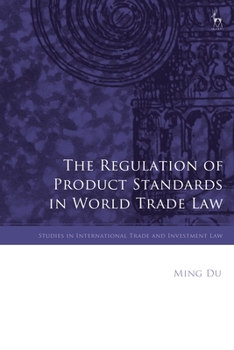The Regulation of Product Standards in World Trade Law
Select Format
Select Condition 
Book Overview
This monograph has two central purposes. The first is to provide a critical analysis of how governmental, private and hybrid product standards are regulated in the GATT/WTO legal framework. The second purpose is to explore - both positively and normatively - the impact that WTO disciplines may have on the composition, function and decision-making process of various standard-setting bodies through the lens of a series of selected case studies, including: the EU eco-labelling scheme; ISO standards; and private standards such as the FSC. The book analyses what role, if any, the WTO may play in making product standards applied in international trade embody not only technological superiority but also substantive and procedural fairness such as deliberation, representativeness, openness, transparency, due process and accountability.
Whilst it has been long recognised that voluntary product standards drawn up by both governmental and non-governmental bodies can in practice create trade barriers as serious as mandatory governmental regulations, a rigorous and systematic inquiry into the boundary, relevance and impact of WTO disciplines on product standards is still lacking. Providing a lucid interpretation of the relevant WTO rules and cases on product standards, this book fills this significant gap in WTO law literature. Definitive and comprehensive, this is an essential reference work for scholars and practitioners alike.Related Subjects
Law




